 |
|
Homeward bound. |
|
|
|
Reading Extremes
The Agony Column for May 23, 2003
Commentary by Rick Kleffel
Change can be good; change can be bracing. It can also whipsaw your brain into a finely pureed mash if you go too far too fast. Most people have total control over their reading, but much to my delight, I don't. Since I've started doing these NPR interviews, I've found myself thrust into guided reading. I don't mind; these are books I enjoy, but also books that wouldn't normally make it into my queue. It's nice being forced to read outside of your own little areas of interest. It gives you a feeling of perspective, so that when you return, it's like coming home after a nice vacation. You enjoyed being away, but being away made it possible to enjoy coming back.
Eric Schlosser's books took me pretty far away from my normal reading path. This is not to say that I wasn't interested in 'Fast Food Nation' from day one. But a fair number of books are frankly more interesting to me in theory than in fact. I bought the trade paperback second edition of 'Fast Food Nation' at a mall in Victorville California. The location is exemplary of the excesses against which Schlosser so effectively rails.
 |
|
Homeward bound. |
Descend through the haze into LAX. Get yourself to the freeway then drive about 100 miles due east, past the endless suburbs, through the thick layers of brown smog, and up into the hard granite mountains that wall in the heat.
 |
|
Homeward bound, still. |
Get up to the summit, slide down again a bit and you're there, in the middle of what should be pretty much a desert wasteland.
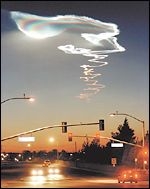 |
|
Vandenberg hovers over Victorville |
Instead you'll find an American Suburb, plucked from somewhere in the middle of Socal and plopped into the desert as if there was a reason to live there. If you've allergies, a job at Vandenberg Air Force base, or a predilection for boredom, then you're in the right place. But there's really no reason that so many new houses should exist in such harsh terrain. You're on the edge of Joshua Tree national monument. And yet, in the midst of this desert, someone had the bright idea to create an artificial lake, and that's right where my mom now lives. And with her, one day, at the huge mega-mall also in Victorville, I bought 'Fast Food Nation' with the best intentions of reading it.
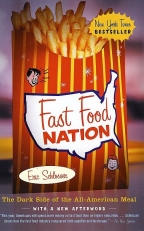 |
|
Eric Schlosser's expose hovers over a nation. |
Alas, I was already on my Agony Column reading list, so it was promptly put on the shelf for a rainy day. I'm apparently expecting a lot of rainy days somewhere down the line. And there it stayed until Schlosser's name came up on the "To be signing at Bookshop Santa Cruz and therefore interviewed by KUSP Fine Print types". I leapt at the chance, as I had 'Fast Food Nation' on my shelf.
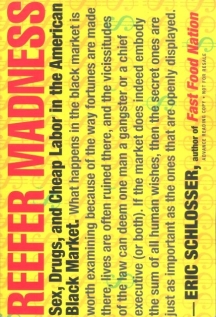 |
|
Not your mother's scare movie. |
Moreover, I also had an abiding interest in the three subjects of his latest book, 'Reefer Madness'. Pot, porn and illegal immigrants all carry about them the strong whiff of sleaze, and if I love anything in non-fiction, it's sleaze. I'd read about the Mitchell Brothers already in John Hubner's fascinating 'Bottom Feeders'. It was a local book set in San Francisco and telling the true-kinda-crime-certainly-sordid story of the Mitchell Brothers whose name lives on every day in the San Francisco Chronicle's Datebook section, rigorously protecting our freedom of sleaze. As for drugs and illegal immigrants, we in Santa Cruz have plenty of both. We have the WAMM coalition, which is kindly raided by Our Big Brother Our Federal Government on a regular basis, and defended by the charmingly counterculture city council. As for illegal immigrants, well, hell, it turned out that a big chunk of 'Reefer Madness' was set in Watsonville, where my wife works, and where we regularly avail ourselves of some of the best carnitas that has ever been made.
But all these excuses for reading the books, all this pertinence, didn't really prepare me for the reading experience.
Now, Schlosser's not writing poetically descriptive dispatches from his lonely perch in a garret. The prose in his books is clearly in service the facts he's gathered, those facts are clearly in the service of his conclusions, and those conclusions are dire. Schlosser's thesis, started in 'Fast Food Nation', continued in 'Reefer Madness', and to be concluded in his as-yet-untitled book about the prison system, is that America is going down the toilet at a rate slightly exceeding the ability of the average citizen to comprehend.
'Fast Food Nation' starts as a simple look at the rise of the huge fast food corporate evils. But as Schlosser marshals his facts, he builds a picture of America spinning out of the control of the people and into the control of a few corporate monoliths. It's the first part of an argument about the malignant nature of capitalism as it's been shaped by those who stand to benefit the most. So-called 'free-market' advocates, he says, have warped the vision of a free market running in a democratic republic. It smells like class warfare to me.
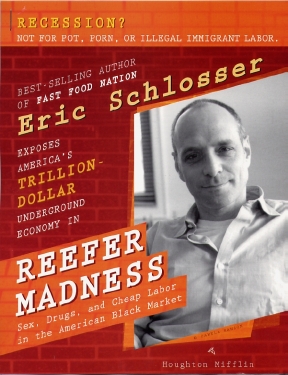 |
|
Eric Schlosser stares down his adversaries from the printed page. |
'Reefer Madness' extends the argument as it examines the underground economy. Schlosser's canvas is huge, but his focus is sharp, and he zooms in on the individuals who are hounded by the forces empowered in 'Fast Food Nation'. Mark Young, the pot dealer sentenced to life in prison, the new peonage of the illegal immigrants and the tale of Reuban Sturman who was shaped by the US government into the criminal that they wanted him to be, all of these individuals touch the reader and pull them close. It's very intense reading.
Schosser's first two pegs in his trilogy are disturbing and affecting in a way that I think fiction cannot possibly compete with. Like many people, upon reading 'Fast Food Nation', I've decided to change my own eating habit slightly. No more Costco bags of frozen burger patties for me. And I don't care how much the kids like Taco Bell - their latest Fast Food Infatuation - my money is not going to pay for reconstituted-with-water bean flakes. Full stop here. No more, no more.
I'm not alone in my reaction to 'Fast Food Nation'. After its publication the stocks of the Fast Food Vultures plummeted, and they don't show a sign of recovering. These books changed my behavior - and the behavior of millions of others -- on a day-to-day basis. Fiction just can't do that. It does not have that same power. It cannot depress you in precisely the fashion that Schlosser's work can, nor can it provide hope in the same fashion that Schlosser's work can.
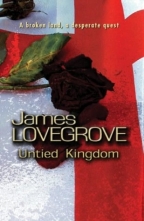 |
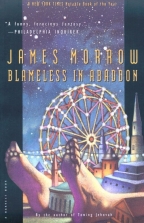 |
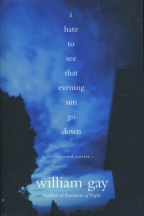 |
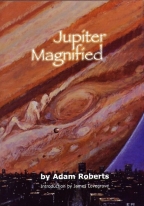 |
But fiction can do a lot of things that non-fiction and Schlosser's work cannot ever hope to do either. Fiction can make you look forward to life and love reading. Now normally, I might have decompressed by reading something right in the middle of Agony Column awareness, like say, 'Untied States', James Lovegrove's latest satire, or James R. Morrow's 'Blameless in Abaddon', something acidic and bracing but fervently unreal. I could have dipped back into some stories from William Gay's 'I hate to see that evening sun go down'. I could easily have gulped down Adam Roberts' 'Polystom', with air travel between planets, or perhaps better, courted a short sharp shock from his 'Jupiter Magnified'.
I'm taken.
Somewhere along about a month ago, the fine people who sent Jonathan Carroll my way wrote and asked if I'd like to talk to Margaret Weis. I didn't know anything about her work, but I said yes, and asked them to send me her latest, 'Mistress of Dragons'. I must admit to a bit of cringing when I first received the book, but I put off reading it until just before she arrived because I wanted to be fresh from the novel when I talked to her, and I thought it would be an easy read. That turned out to be the first of many underestimates I made in regards to this book.
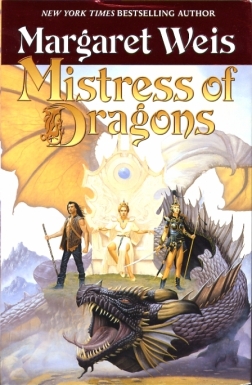 |
|
Margaret Weis deserves a place in the dictionary. I can hardly wait for her sequel, 'The Dragon's Son'. |
'Mistress of Dragons' wasn't just easy to read. It was easy to understand. It was especially easy to enjoy. You can try, as I did, to gird yourself in the hard facts from well-written and immaculately argued non-fiction. You can endeavor to exempt yourself from the charm by recalling bitter joys, from Flannery O'Connor to Angela Carter. You can struggle to supplant simple pleasures of page-turning with the complex ploys of Martin Amis and Ken Macleod. But comes down to it, comes the day when the pages start flipping when you're whisked away by Margaret Weis and her frisky warriors and pesky dragons, your mind will become the blankest slate this side of a Washington DC dinner. And damn if you won't look forward to every session with her happy oaf of a King, her curmudgeonly disguised dragon, her curvaceous clueless princess-in-waiting. I'm sorry. I lost my objectivity. I chucked the culturometer. And I couldn't have cared a bit.
Because every time I sat down to read 'Mistress of Dragons' I found myself transported into the world created by Margaret Weis. And this is no accident. Margaret Weis is surely yet another example of the age-old adage that if you do something enough, you'll get good at it. Margaret Weis is an absolute pro at transporting the reader into the worlds she's created. What's more, she's perfected the art of making your stay there eminently entertainingly enjoyable. They could scan the cover of this book and put it in the dictionary right next to 'hoot'. As it happens they need it in the dictionary, because even my OED didn't include "a fun and raucous pleasure" in its definition of hoot. Get off the stick OED guys!
Readers will know that I read and enjoy a fair amount of cheesy fiction, probably more than is good for me. But Weis' novel fell into that sublime range where the factors that make the novel fun are simply signs that the author is rather talented. The emotions spurred by 'Mistress of Dragons' were undeniably strong. I looked forward to reading it, and I regretted finishing it. Once I had finished it, I wished I hadn't. I wanted to be back in that utterly undemanding but supremely satisfying reading space.
And all that only five days after 'Fast Food Nation' changed my eating habits forever. The range of emotions and thoughts created by the reading experience seemed vast. Fiction, non-fiction - how can they compete? They can't, they do, you need them both.
Whipsawed again. Tossed about like a flapjack in greasy spoon kitchen. Up, down, on the griddle.
Now that's what reading is all about.
Well, there's one more aspect to the whole story. Look at my inbox; Chuck Palahniuk, Alan Deutschman, Christopher Moore, Eugene Ceruzzi. NESW. I'm living a life of permanent jet lag and I never even get on a plane.
Thanks,
Rick Kleffel